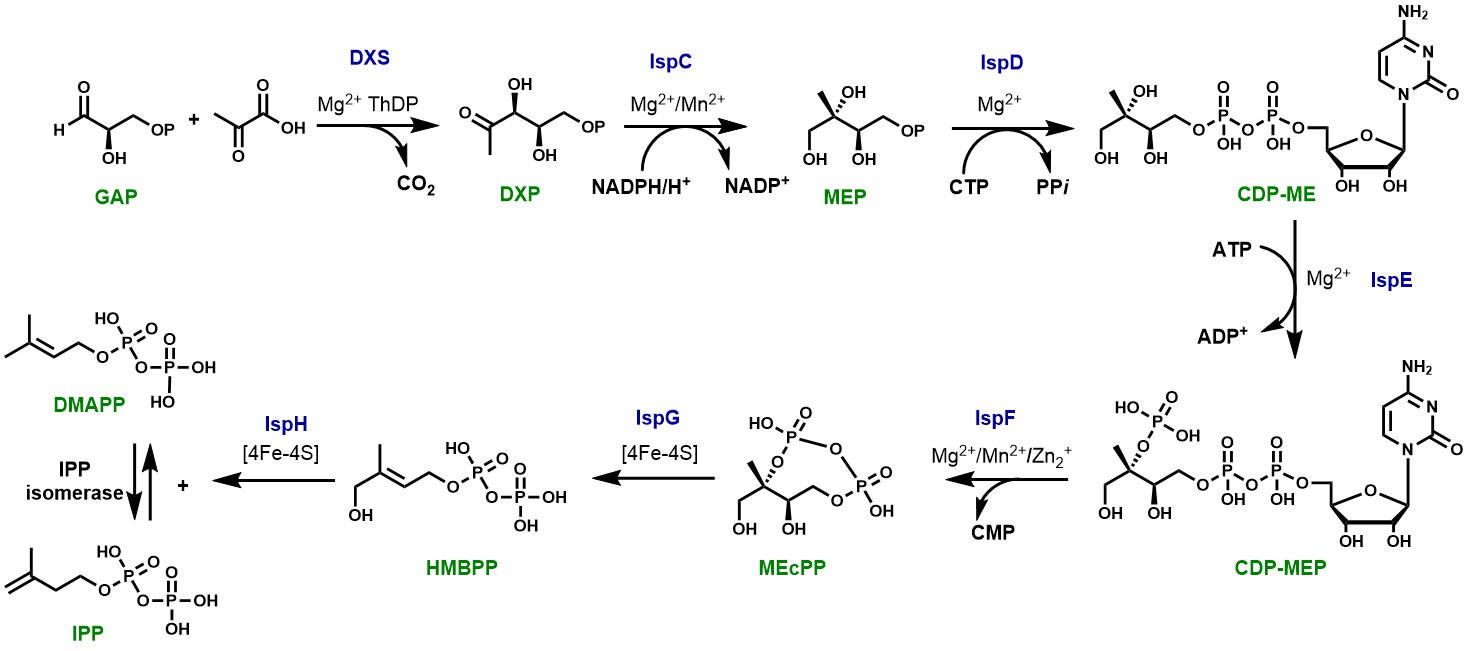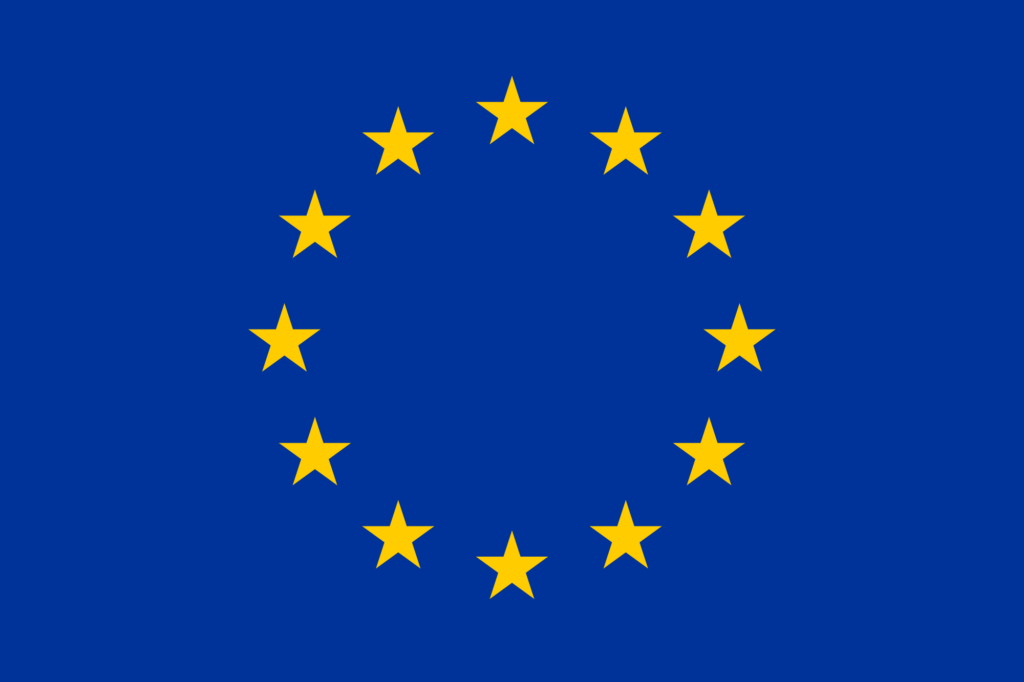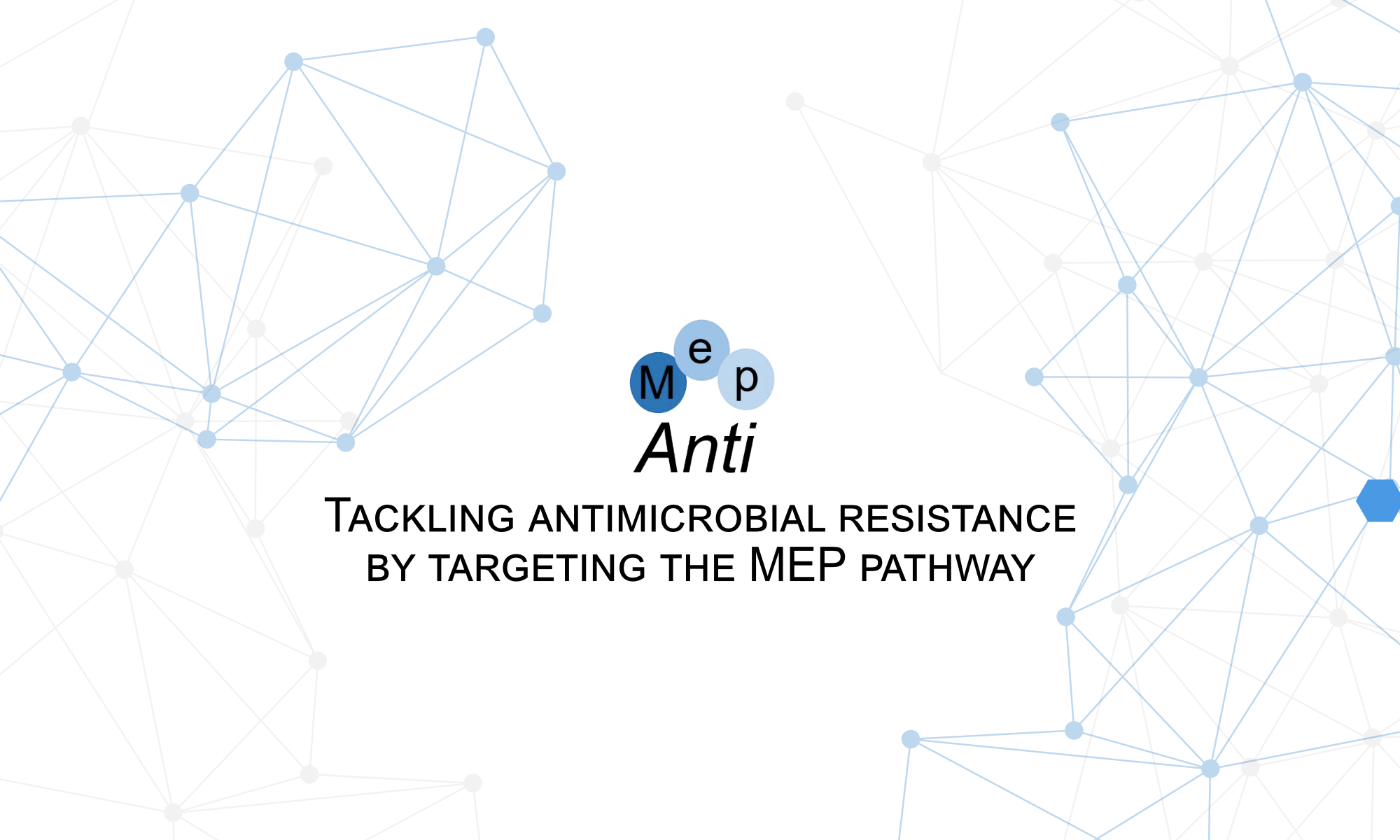
The MEP pathway is entirely absent in humans but it is essential for medically relevant pathogens (e.g. P. falciparum, M. tuberculosis, and P. aeruginosa – as a representative Gram negative bacterium).
In order to achieve this ambitious goal, a group of leading scientists from academia and industry from a range of European countries has the mission to train the next generation of scientists with cutting-edge interdisciplinary skills in the discovery of new anti-infective agents.
The research program is comprised of three thematically distinct but also overlapping and complementary work packages (WPs). Twelve early stage researchers (ESRs) and their respective supervisors will conduct the research in WPs 1-3.WP 1 has the goal to elucidate the structural features of the constituent enzymes of the MEP pathway from a range of important pathogens. This information will set the stage for the design and synthesis of selective and potent inhibitors (WP 2), which will be tested in vitro (WP 2) and in cellulo by microbiologists, parasitologists and chemical biologists (WP 3). In addition, the compounds will be characterized by chemical proteomics (OmicScouts) to demonstrate target engagement, monitor the selectivity and elucidate potential off-targets.
WP 1: STRUCTURAL BIOLOGY OF THE ENZYME OF THE PATHWAY
To elucidate crystal structures of constituent enzymes from pathogenic organisms
WP 2: DESIGN AND SYNTHESIS OF INHIBITORS OF THE MEP PATHWAY
Rational design and synthesis of potent inhibitors
WP 3: FRAGMENT- AND CELL-BASED ASSAY
Fragment screening, cell-based assays and various other techniques
NEWS
- MepAnti Drug Research Symposium: Young Minds, Big ImpactAnnouncement: the MepAnti team is organizing the MepAnti Drug Research Symposium: Young Minds, Big ImpactMore information about the symposium can be found here /*! elementor …
Continue reading "MepAnti Drug Research Symposium: Young Minds, Big Impact"
FUNDING

This project has received funding from the European Union's Horizon 2020 research and innovation programme under the Marie Skłodowska-Curie grant agreement No 860816.
